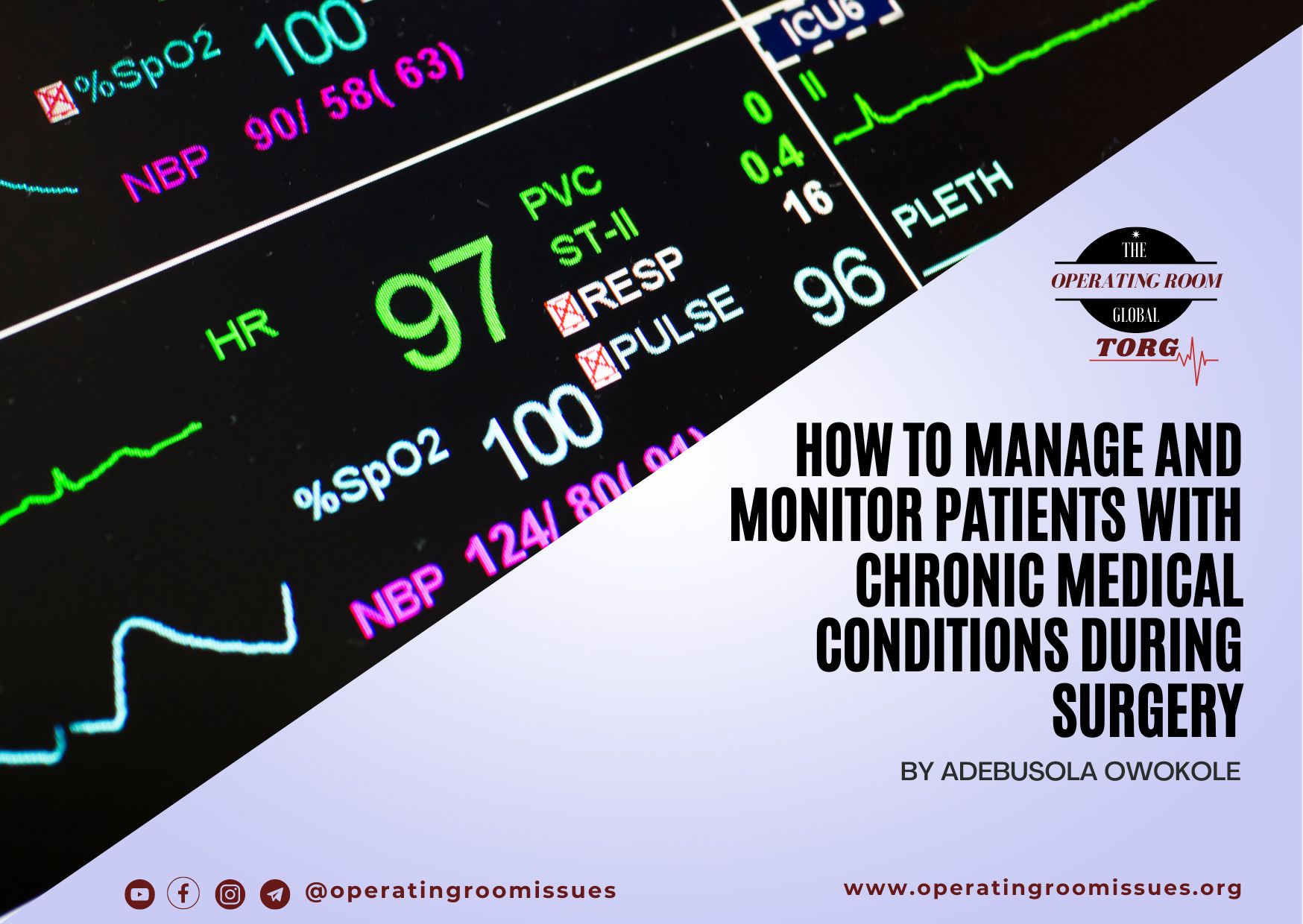By Adebusola Owokole (TORG Founder/President)
Managing and monitoring patients with chronic medical conditions during surgery requires a multidisciplinary approach that involves healthcare providers from multiple specialties working together. Chronic medical conditions such as diabetes, heart disease, and respiratory disease can increase the risk of complications during surgery, and proper management and monitoring are essential for ensuring the safety and well-being of the patient. In this blog post, we will discuss strategies for managing and monitoring patients with chronic medical conditions during surgery.
Preoperative Preparation
Medical History: Prior to surgery, healthcare providers should obtain a detailed medical history from the patient, including any chronic medical conditions, medications, and allergies. This information will help guide the management and monitoring of the patient during surgery.
Medications: Patients with chronic medical conditions may be taking medications that could affect the surgery or anaesthesia. Healthcare providers should review the patient’s medication regimen prior to surgery and make any necessary adjustments.
Glucose Management: For patients with diabetes, glucose management is critical during surgery. Healthcare providers should work with the patient to develop a plan for managing blood glucose levels during surgery, which may involve adjustments to insulin or other medications.
During Surgery
Anaesthesia: Patients with chronic medical conditions may be at higher risk for complications from anaesthesia. Healthcare providers should carefully monitor the patient’s vital signs and adjust anaesthesia dosages as needed.
Glucose Monitoring: For patients with diabetes, glucose monitoring is essential during surgery. Healthcare providers should monitor blood glucose levels and make adjustments to insulin or other medications as needed.
Oxygenation: Patients with respiratory conditions may require additional oxygen support during surgery. Healthcare providers should closely monitor the patient’s oxygen saturation levels and adjust oxygen supplementation as needed.
Postoperative Care
Pain Management: Patients with chronic medical conditions may have different pain management needs after surgery. Healthcare providers should work with the patient to develop a pain management plan that considers any chronic medical conditions and medications.
Glucose Management: For patients with diabetes, glucose management continues to be important after surgery. Healthcare providers should monitor blood glucose levels closely and make any necessary adjustments to insulin or other medications.
Follow-Up: Patients with chronic medical conditions may require additional follow-up after surgery to ensure proper management of their condition. Healthcare providers should provide appropriate education and support to the patient and their caregivers to help prevent complications and promote successful recovery.
Conclusion
Managing and monitoring patients with chronic medical conditions during surgery requires careful planning, communication, and collaboration among healthcare providers from multiple specialties. By taking a multidisciplinary approach and developing a customized management and monitoring plan for each patient, healthcare providers can help ensure the safety and well-being of patients with chronic medical conditions during surgery. Proper management and monitoring can also help prevent complications and promote successful recovery.

